Recent studies have discovered a relationship between glycosylphosphatidylinositol (GPI)-anchored protein 80 (GPI-80)/VNN2 (80 kDa GPI-anchored protein) and malignant tumors. GPI-80 is known to regulate neutrophil adhesion; however, the action of GPI-80 on tumors is still obscure. In this study, although the expression of GPI-80 mRNA was detectable in several tumor cell lines, the levels of GPI-80 protein were significantly lower than that in neutrophils. To clarify the function of GPI-80 in tumor cells, GPI-80-expressing cells and GPI-80/VNN2 gene-deleted cells were established using PC3 prostate cancer cells. In GPI-80-expressing cells, GPI-80 was mainly detected in vesicles. Furthermore, soluble GPI-80 in the conditioned medium was associated with the exosome marker CD63 and was also detected in the plasma obtained from prostate cancer patients. Unexpectedly, cell adhesion and migration of GPI-80-expressing PC3 cells were not modulated by anti-GPI-80 antibody treatment. However, similar to the GPI-80 family molecule, VNN1, the pantetheinase activity and oxidative state were augmented in GPI-80-expressing cells. GPI-80-expressing cells facilitated non-adhesive proliferation, slow cell proliferation, NF-κB activation and IL-1β production. These phenomena are known to be induced by physiological elevation of the oxidative state. Thus, these observations indicated that GPI-80 affects various tumor responses related to oxidation.
最近的研究发现了糖基磷脂酰肌醇(GPI)-锚定蛋白80(GPI-80)/VNN2(80 kDa GPI-锚定蛋白)与恶性肿瘤之间的关系。已知 GPI-80 可调节中性粒细胞粘附;然而,GPI-80 对肿瘤的作用仍不清楚。在这项研究中,虽然在几种肿瘤细胞系中可检测到 GPI-80 mRNA 的表达,但 GPI-80 蛋白的水平显着低于中性粒细胞。为了阐明GPI-80在肿瘤细胞中的功能,使用PC3前列腺癌细胞建立了表达GPI-80的细胞和GPI-80/VNN2基因缺失的细胞。在表达 GPI-80 的细胞中,主要在囊泡中检测到 GPI-80。此外,条件培养基中的可溶性 GPI-80 与外泌体标志物 CD63 相关,并且也在从前列腺癌患者获得的血浆中检测到。出乎意料的是,表达 GPI-80 的 PC3 细胞的细胞粘附和迁移不受抗 GPI-80 抗体处理的调节。然而,与 GPI-80 家族分子 VNN1 类似,泛酸酶活性和氧化状态在表达 GPI-80 的细胞中得到增强。表达 GPI-80 的细胞促进非粘附性增殖、减缓细胞增殖、NF-κB 活化和 IL-1β 产生。已知这些现象是由氧化状态的生理升高引起的。因此,这些观察表明 GPI-80 影响与氧化相关的各种肿瘤反应。表达 GPI-80 的 PC3 细胞的细胞粘附和迁移不受抗 GPI-80 抗体处理的调节。然而,与 GPI-80 家族分子 VNN1 类似,泛酸酶活性和氧化状态在表达 GPI-80 的细胞中得到增强。表达 GPI-80 的细胞促进非粘附性增殖、减缓细胞增殖、NF-κB 活化和 IL-1β 产生。已知这些现象是由氧化状态的生理升高引起的。因此,这些观察表明 GPI-80 影响与氧化相关的各种肿瘤反应。表达 GPI-80 的 PC3 细胞的细胞粘附和迁移不受抗 GPI-80 抗体处理的调节。然而,与 GPI-80 家族分子 VNN1 类似,泛酸酶活性和氧化状态在表达 GPI-80 的细胞中得到增强。表达 GPI-80 的细胞促进非粘附性增殖、减缓细胞增殖、NF-κB 活化和 IL-1β 产生。已知这些现象是由氧化状态的生理升高引起的。因此,这些观察表明 GPI-80 影响与氧化相关的各种肿瘤反应。NF-κB 活化和 IL-1β 产生。已知这些现象是由氧化状态的生理升高引起的。因此,这些观察表明 GPI-80 影响与氧化相关的各种肿瘤反应。NF-κB 活化和 IL-1β 产生。已知这些现象是由氧化状态的生理升高引起的。因此,这些观察表明 GPI-80 影响与氧化相关的各种肿瘤反应。
Molecular targeted drugs and immune checkpoint inhibitors have opened a new era of cancer therapy. Recently, clinical studies have focused on the individual differences in therapeutic efficacy as well as the side effects [1]. Although the molecular mechanisms of resistance to these therapies have been elucidated, effective strategies to prevent or treat resistant tumors are nevertheless required to improve clinical outcomes for patients [2]. Therefore, in order to develop effective treatments, investigation into the mechanism of malignant transformation is the need of the hour.
Various comprehensive analytical studies have identified many molecules associated with tumor formation and malignancy. Recently, glycosylphosphatidylinositol (GPI)-anchored protein (GPI-80 also known as VNN2) has been identified as one of the molecules associated with chemotherapeutic resistance of tumors [3]. GPI-80, identified in human neutrophils [4], has been reported to regulate neutrophil adhesion and migration [4]. Furthermore, GPI-80 co-localizes with β2 integrin on resting neutrophils and is concentrated on pseudopodia during neutrophil migration [5]. Based on these observations, GPI-80 is considered to be a molecule that regulates adhesion on neutrophils. However, GPI-80 was detected not only on pseudopods but also in secretory vesicles [6], and soluble GPI-80 is released from activated neutrophils [7]. Besides neutrophils, hematopoietic stem cells also express GPI-80. Therefore, GPI-80 is considered to be a marker for hematopoietic stem cells.
Moreover, it has also been reported that GPI-80 is associated with malignant tumors [8]. In a previous study, microRNA-106a targeted GPI-80 and suppressed its expression. Inhibition of microRNA-106a induced overexpression of GPI-80 leading to reduced proliferation of osteosarcoma cells and increased apoptosis. This result suggested that GPI-80 might reduce osteosarcoma tumorigenesis. However, it has been reported that GPI-80 mRNA expression was upregulated in androgen-deprived prostate cancer cells (PC3 cells) [9] as well as in the metastatic human esophageal squamous cell carcinoma cell line (T.Tn-AT1 cells) [10]. These observations suggest that increased levels of GPI-80 may be involved in tumor growth and metastasis.
GPI-80 is a member of the pantetheinase gene family that consists of pantetheinase/VNN1, which produces pantothenic acid (vitamin B5) and cysteamine from pantetheine [11]. VNN1 is thought to limit the Warburg effect and suppress the growth of sarcomas [12]. It is still uncertain whether GPI-80 exhibits pantetheinase activity.
The present study examines the role of GPI-80 in tumor cells by overexpressing GPI-80 as well as deleting GPI-80 in PC3 cells. This study demonstrates the basic mechanism of action of GPI-80 in tumors.
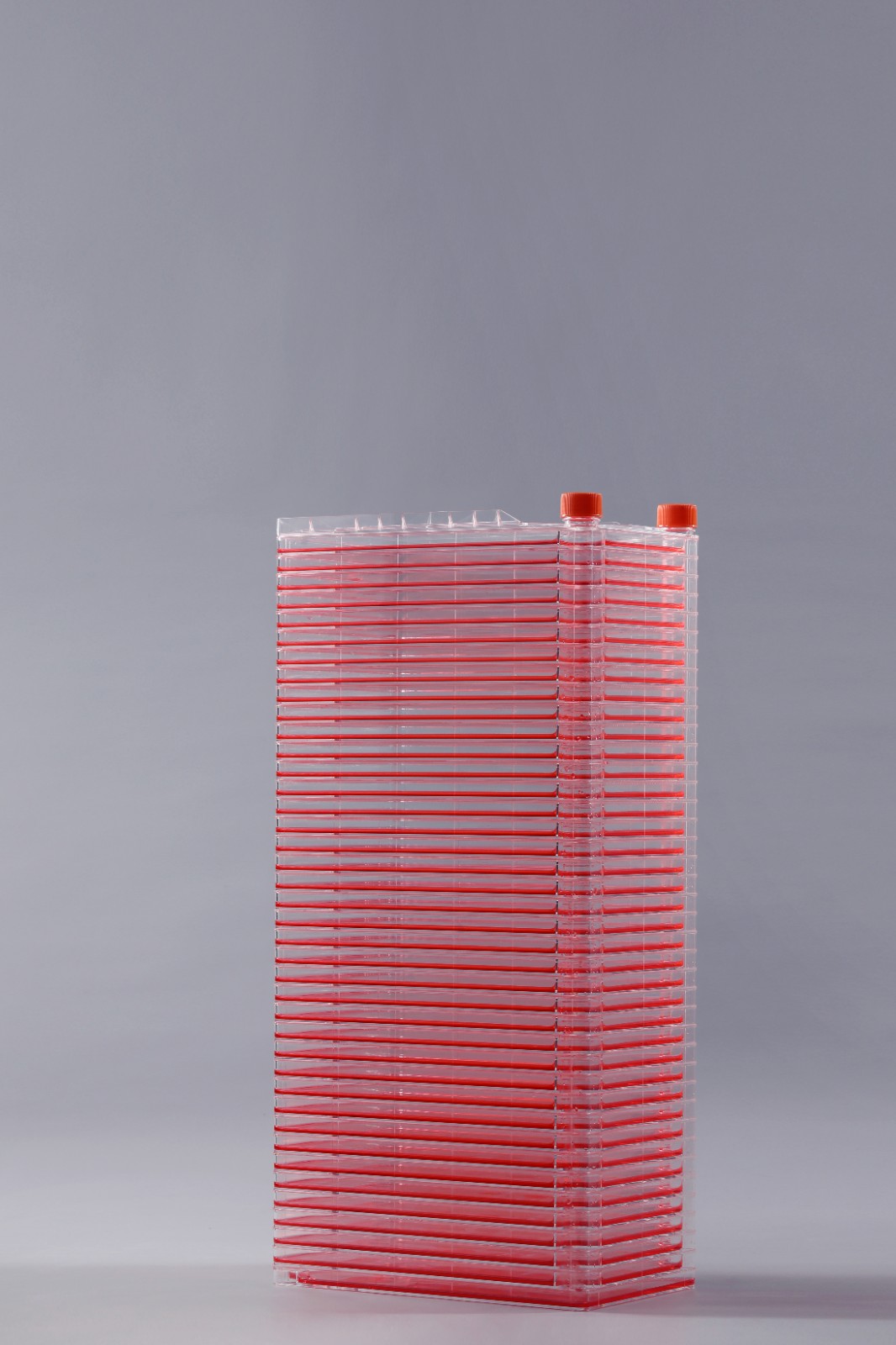
40层细胞工厂
分子靶向药物和免疫检查点抑制剂开启了癌症治疗的新时代。最近,临床研究集中在治疗效果和副作用的个体差异[ 1 ]。尽管已经阐明了对这些疗法产生耐药性的分子机制,但仍需要预防或治疗耐药性肿瘤的有效策略来改善患者的临床结果 [ 2 ]。因此,为了开发有效的治疗方法,研究恶变的机制是当务之急。
各种综合分析研究已经确定了许多与肿瘤形成和恶性肿瘤相关的分子。最近,糖基磷脂酰肌醇 (GPI) 锚定蛋白 (GPI-80 也称为 VNN2) 已被确定为与肿瘤化疗耐药相关的分子之一 [ 3 ]。GPI-80,在人类中性粒细胞中鉴定 [ 4 ],据报道可调节中性粒细胞粘附和迁移 [ 4 ]。此外,GPI-80 与 β2 整合素共定位于静息中性粒细胞上,并在中性粒细胞迁移过程中集中在伪足上 [ 5]]。基于这些观察,GPI-80 被认为是一种调节嗜中性粒细胞粘附的分子。然而,不仅在伪足上检测到 GPI-80,还在分泌囊泡中检测到 GPI-80 [ 6 ],并且可溶性 GPI-80 从活化的中性粒细胞中释放出来 [ 7 ]。除了中性粒细胞,造血干细胞也表达 GPI-80。因此,GPI-80被认为是造血干细胞的标志物。
此外,也有报道称 GPI-80 与恶性肿瘤有关 [ 8 ]。在之前的一项研究中,microRNA-106a 靶向 GPI-80 并抑制其表达。microRNA-106a 的抑制诱导 GPI-80 的过度表达,导致骨肉瘤细胞增殖减少和细胞凋亡增加。该结果表明 GPI-80 可能减少骨肉瘤的肿瘤发生。然而,据报道 GPI-80 mRNA 表达在雄激素剥夺的前列腺癌细胞(PC3 细胞)[ 9 ] 以及转移性人食管鳞状细胞癌细胞系(T.Tn-AT1 细胞)中上调[ 9 ]。10 ]。这些观察结果表明 GPI-80 水平升高可能与肿瘤生长和转移有关。
GPI-80 是泛酰巯基乙胺酶基因家族的成员,由泛酰巯基乙胺酶/VNN1 组成,可从泛酰巯基乙胺中产生泛酸(维生素 B5)和半胱胺 [ 11 ]。VNN1 被认为可以限制 Warburg 效应并抑制肉瘤的生长 [ 12 ]。GPI-80 是否表现出泛酸酶活性仍不确定。
本研究通过过表达 GPI-80 以及删除 PC3 细胞中的 GPI-80 来检查 GPI-80 在肿瘤细胞中的作用。该研究证明了 GPI-80 在肿瘤中的基本作用机制。
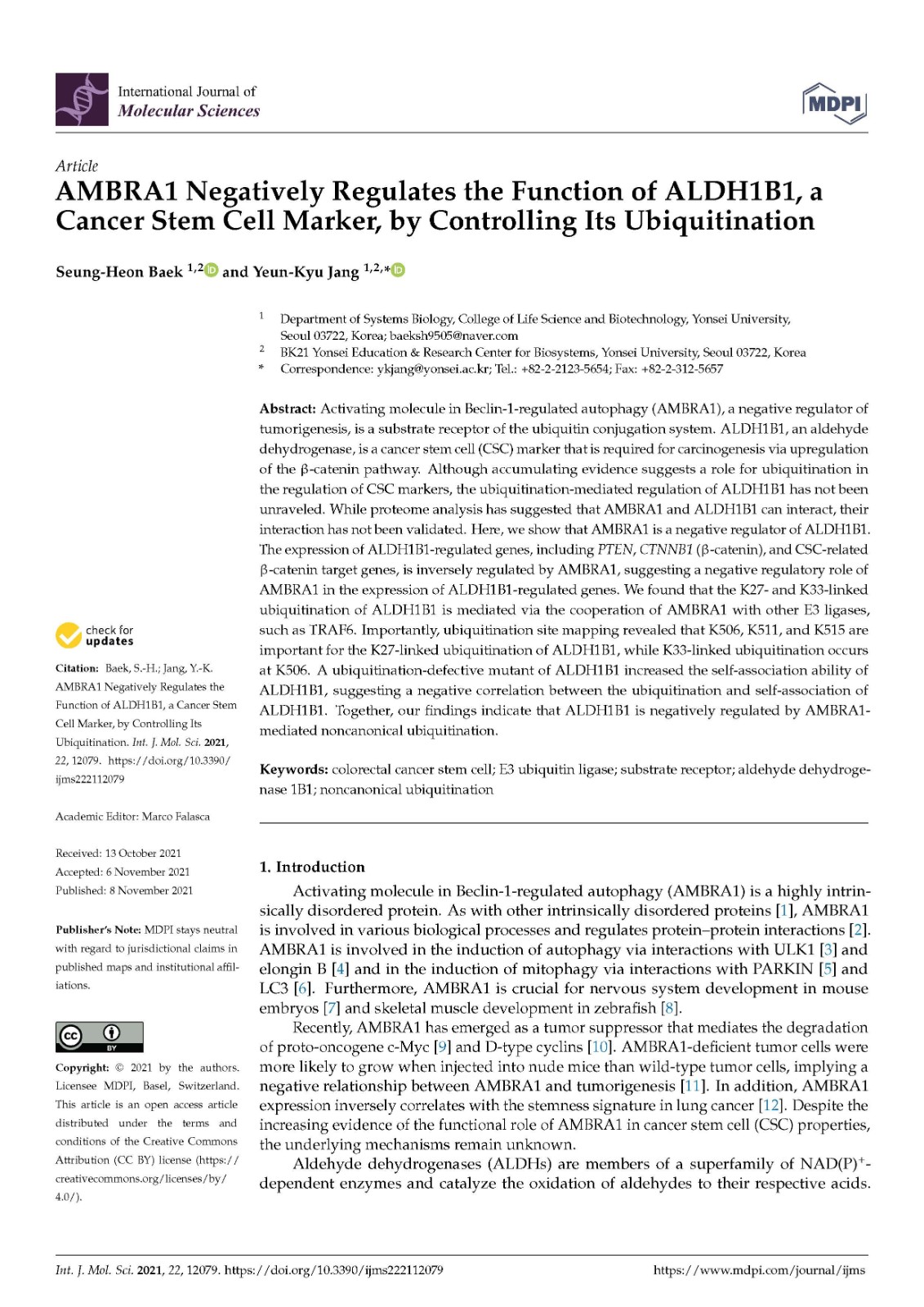

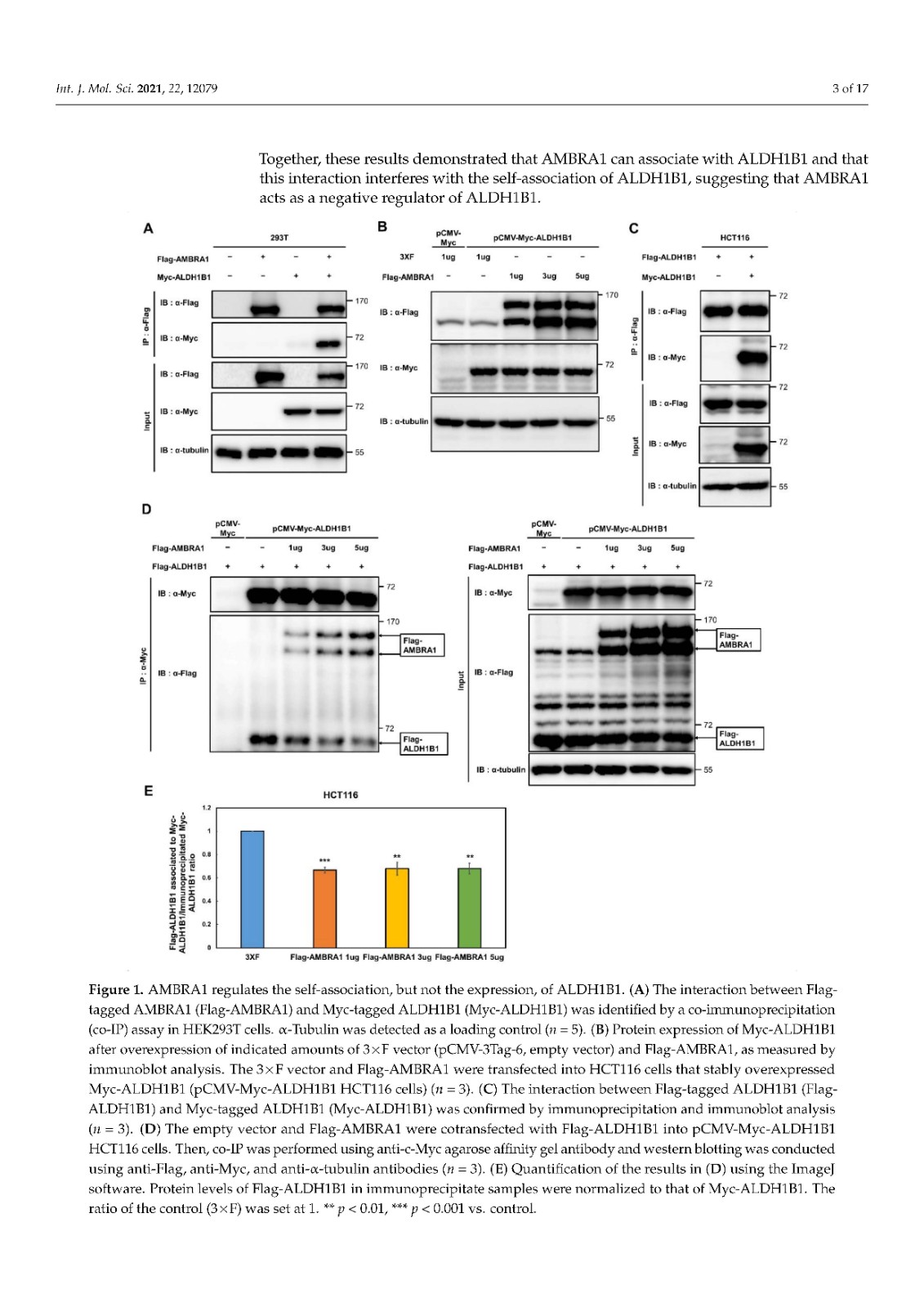
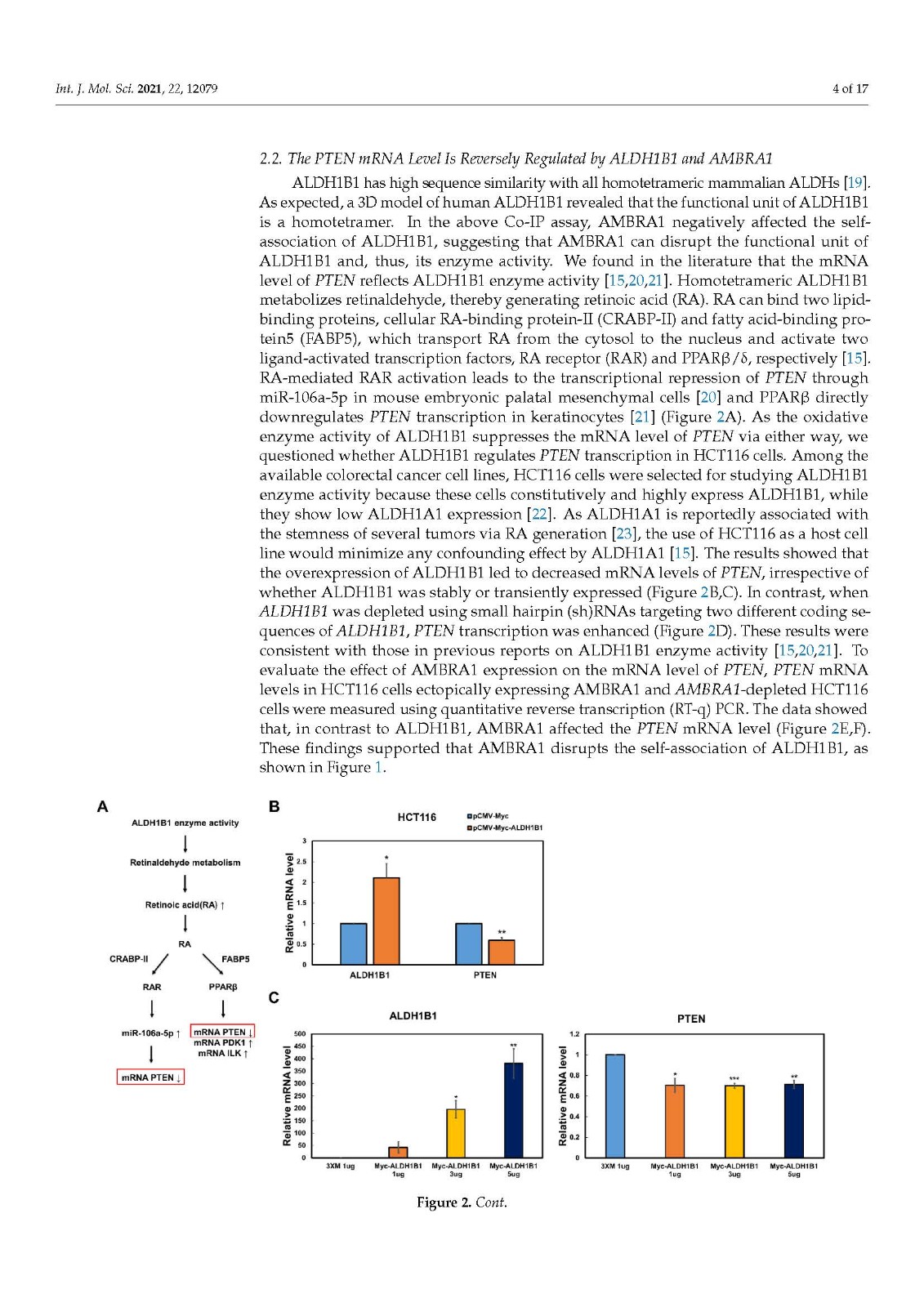
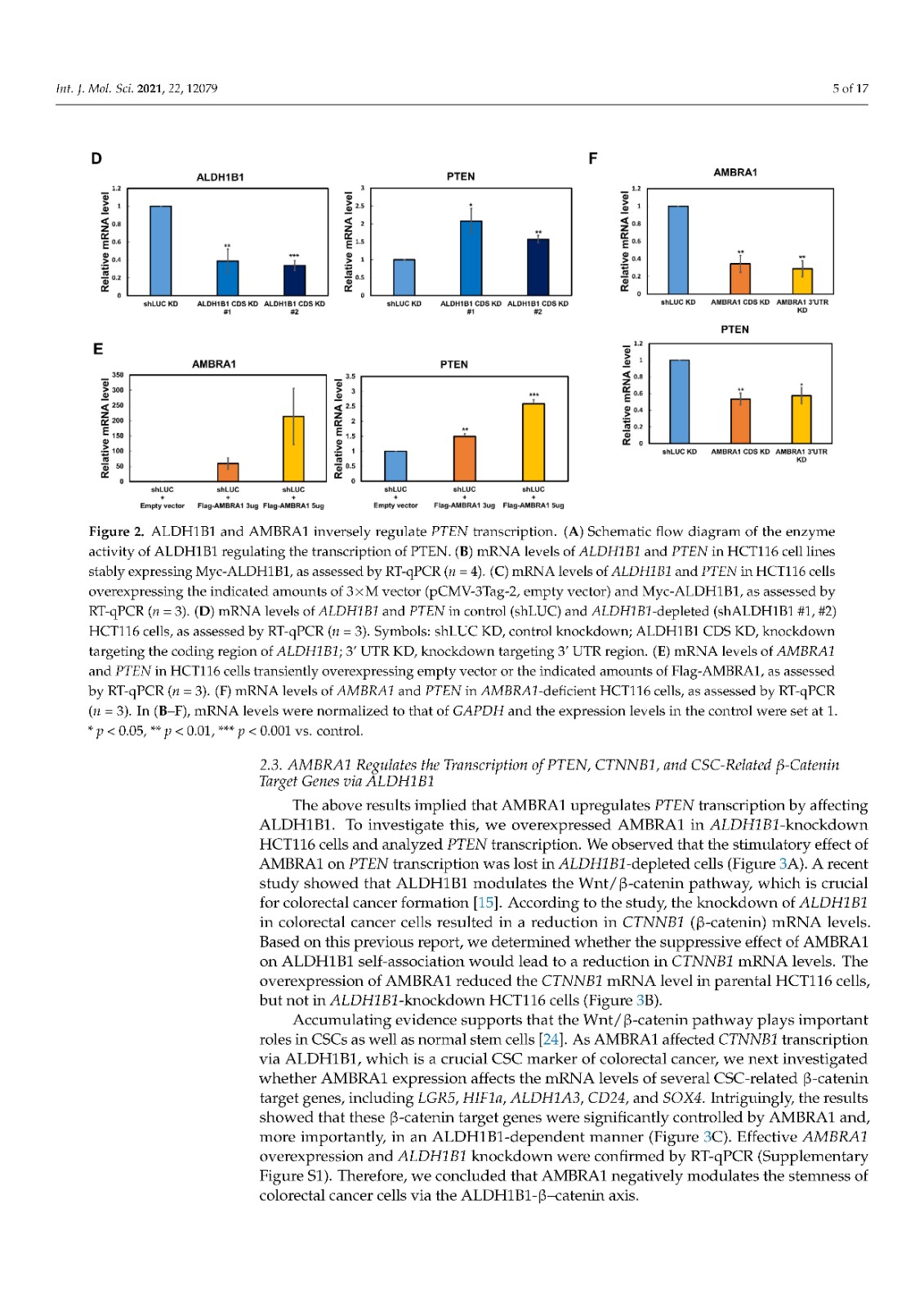

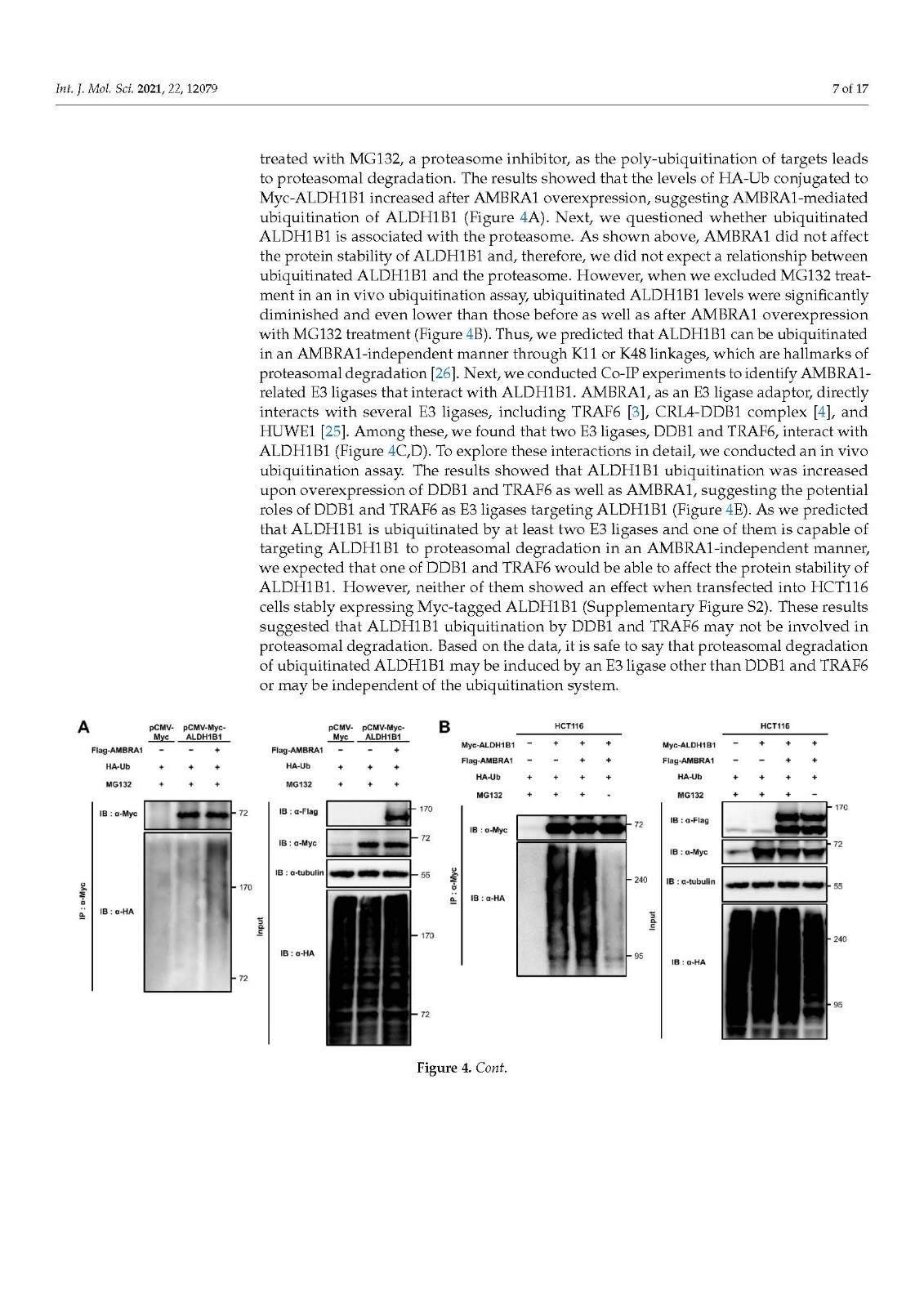

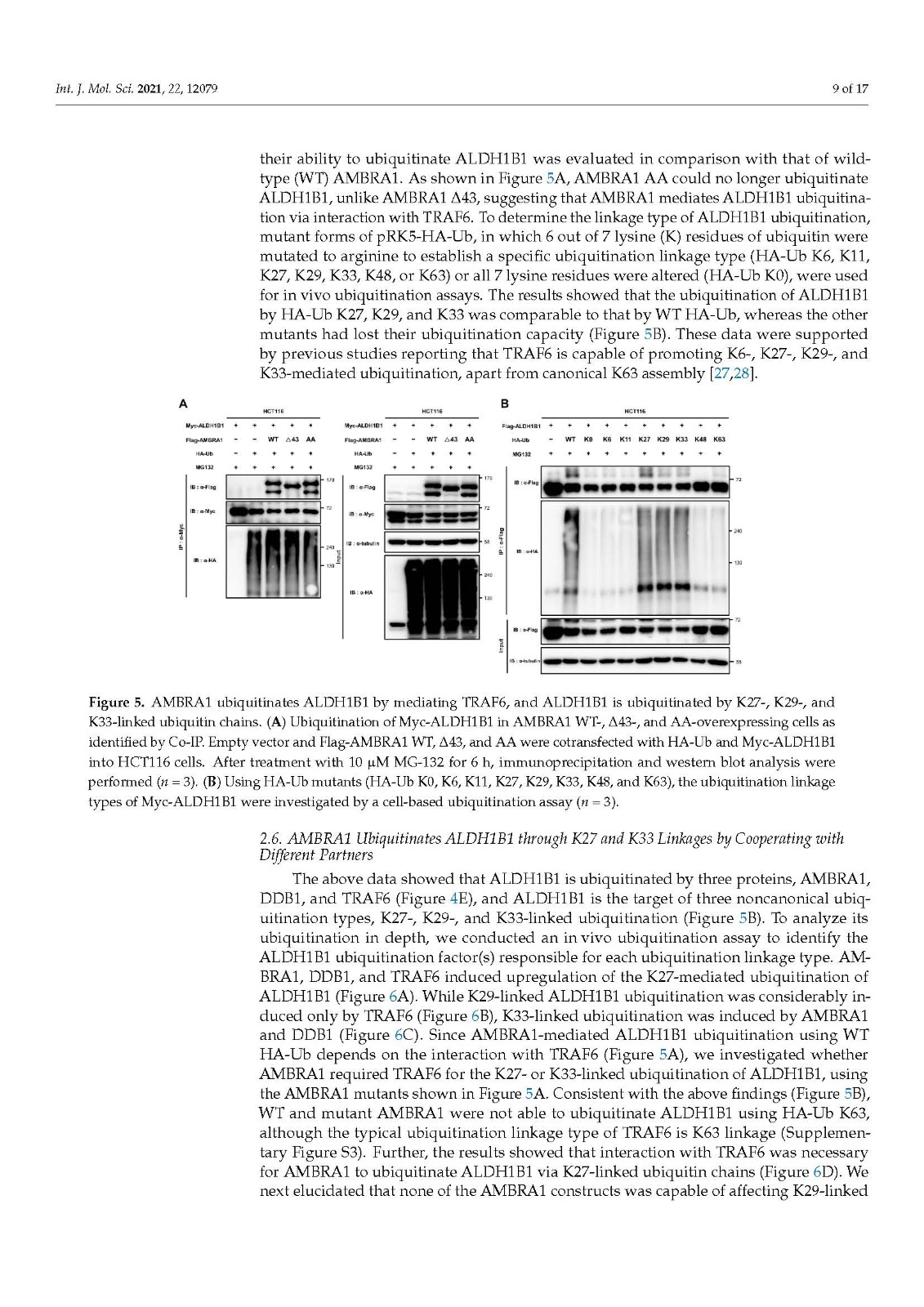
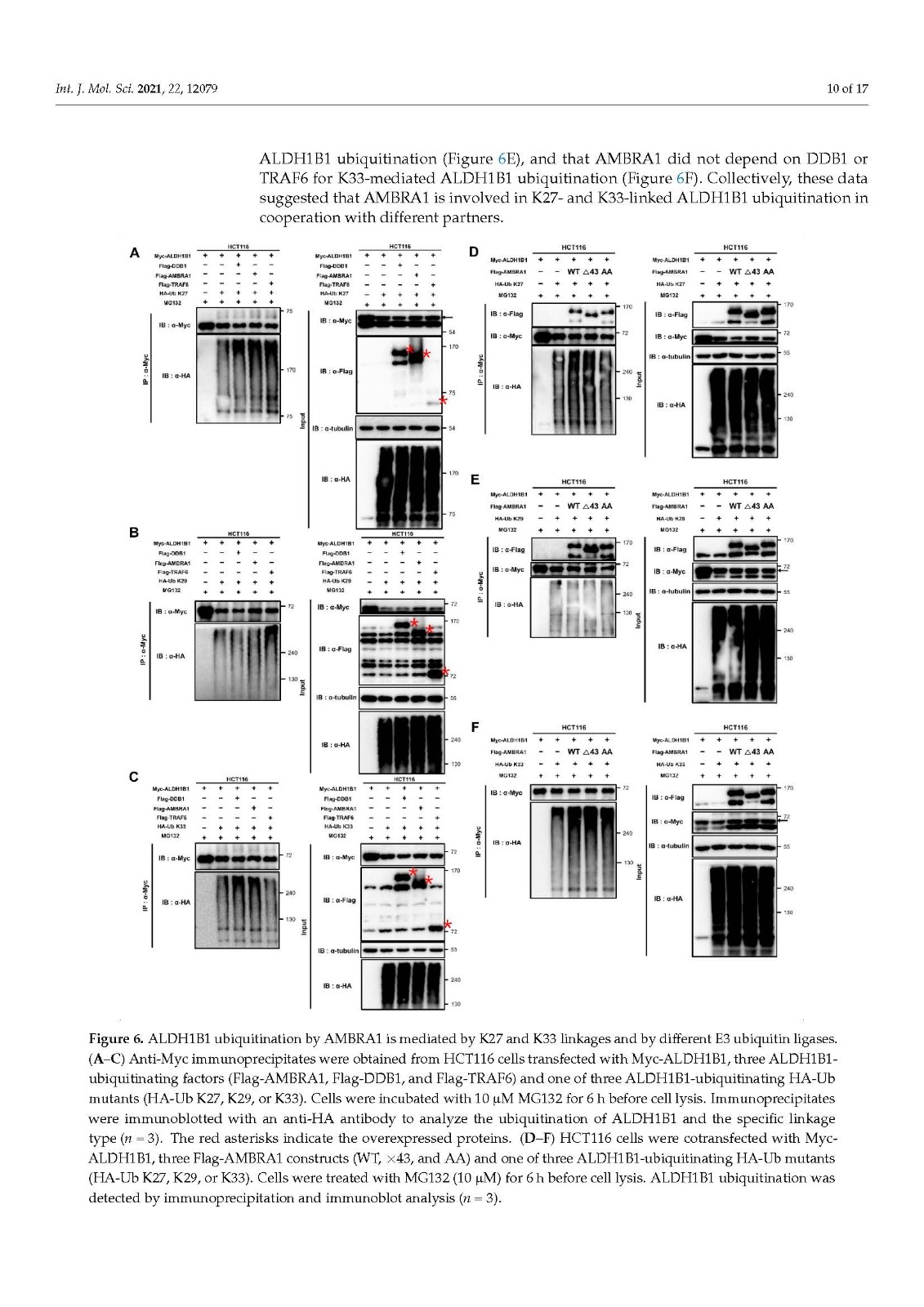
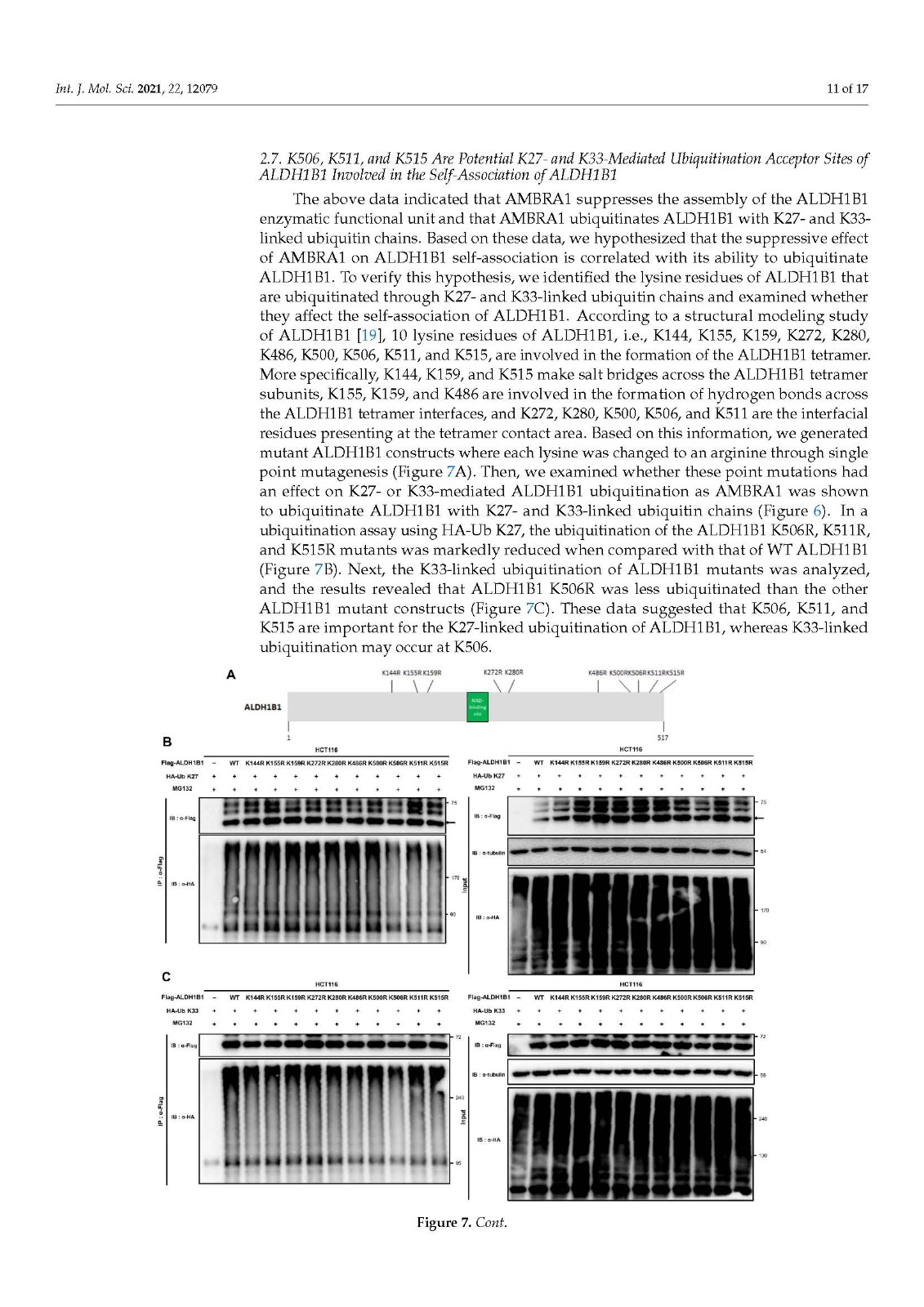
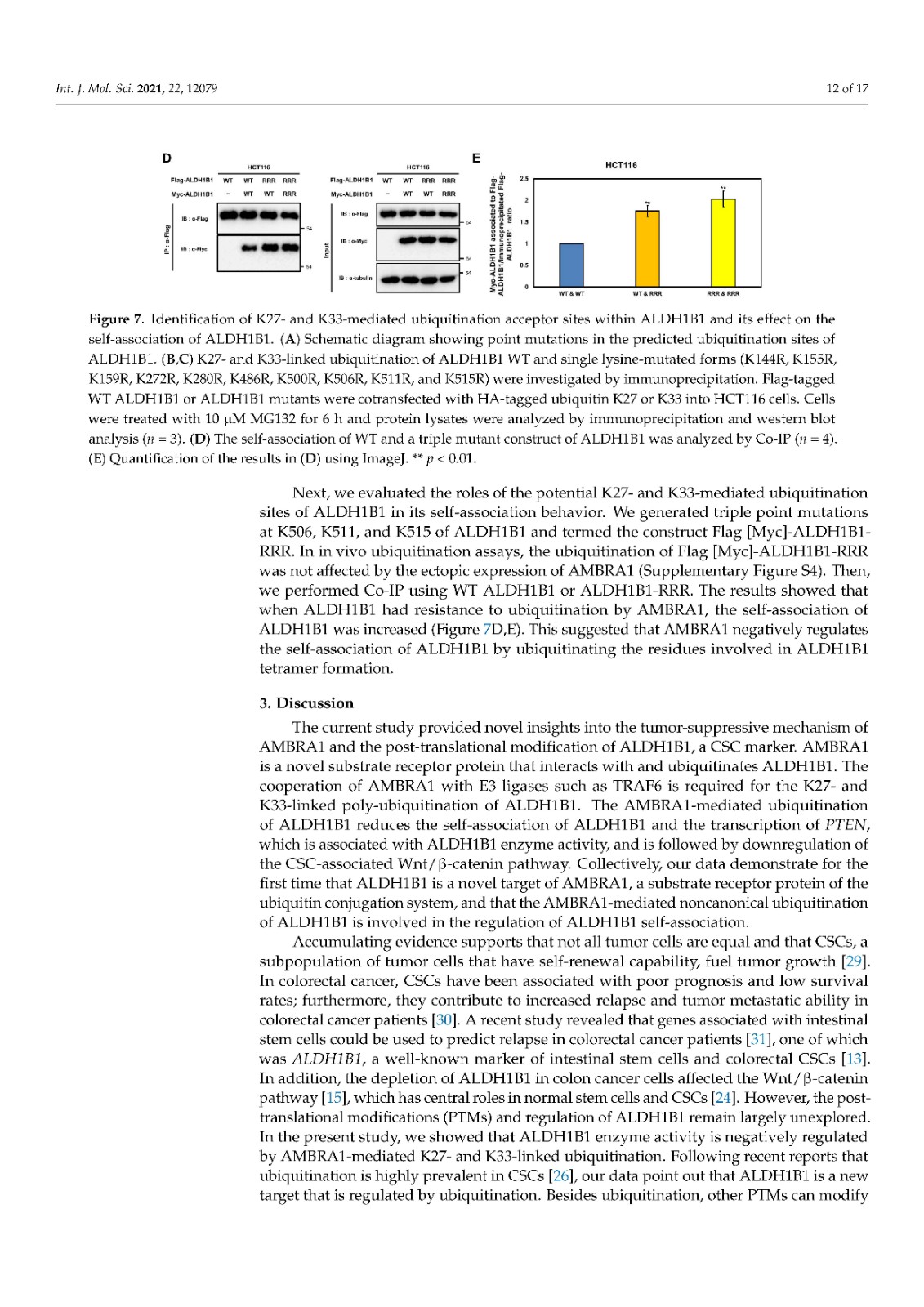
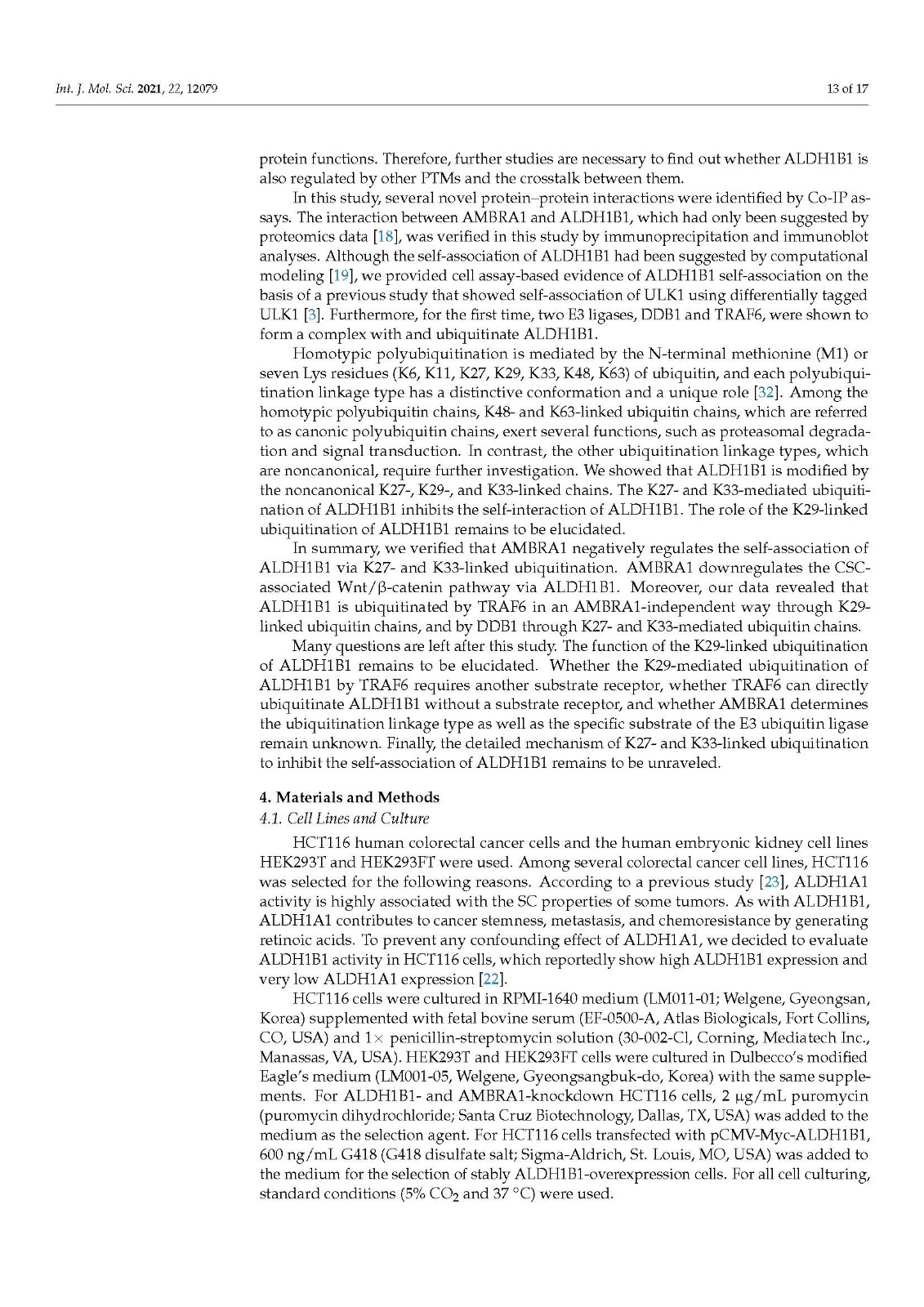
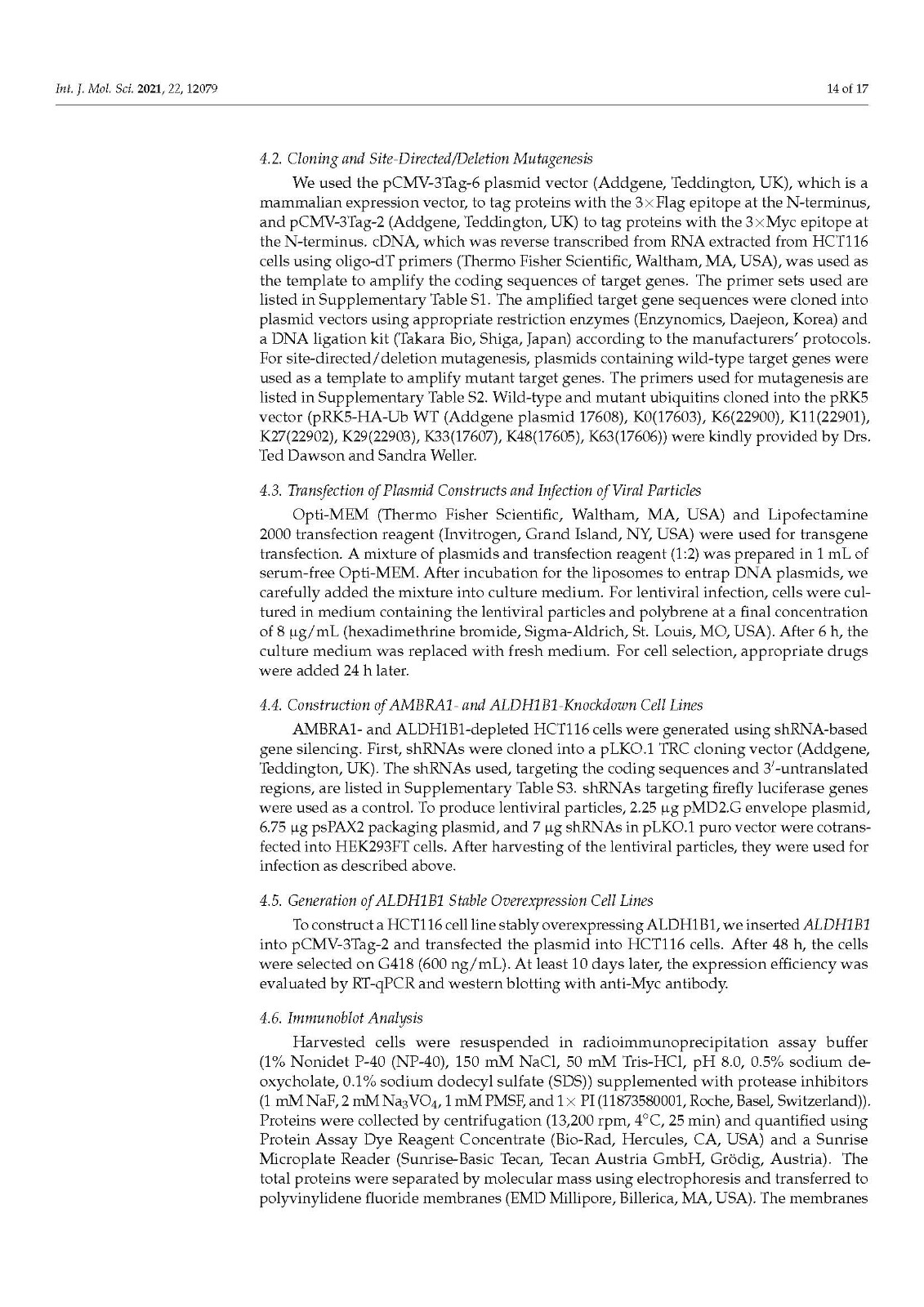
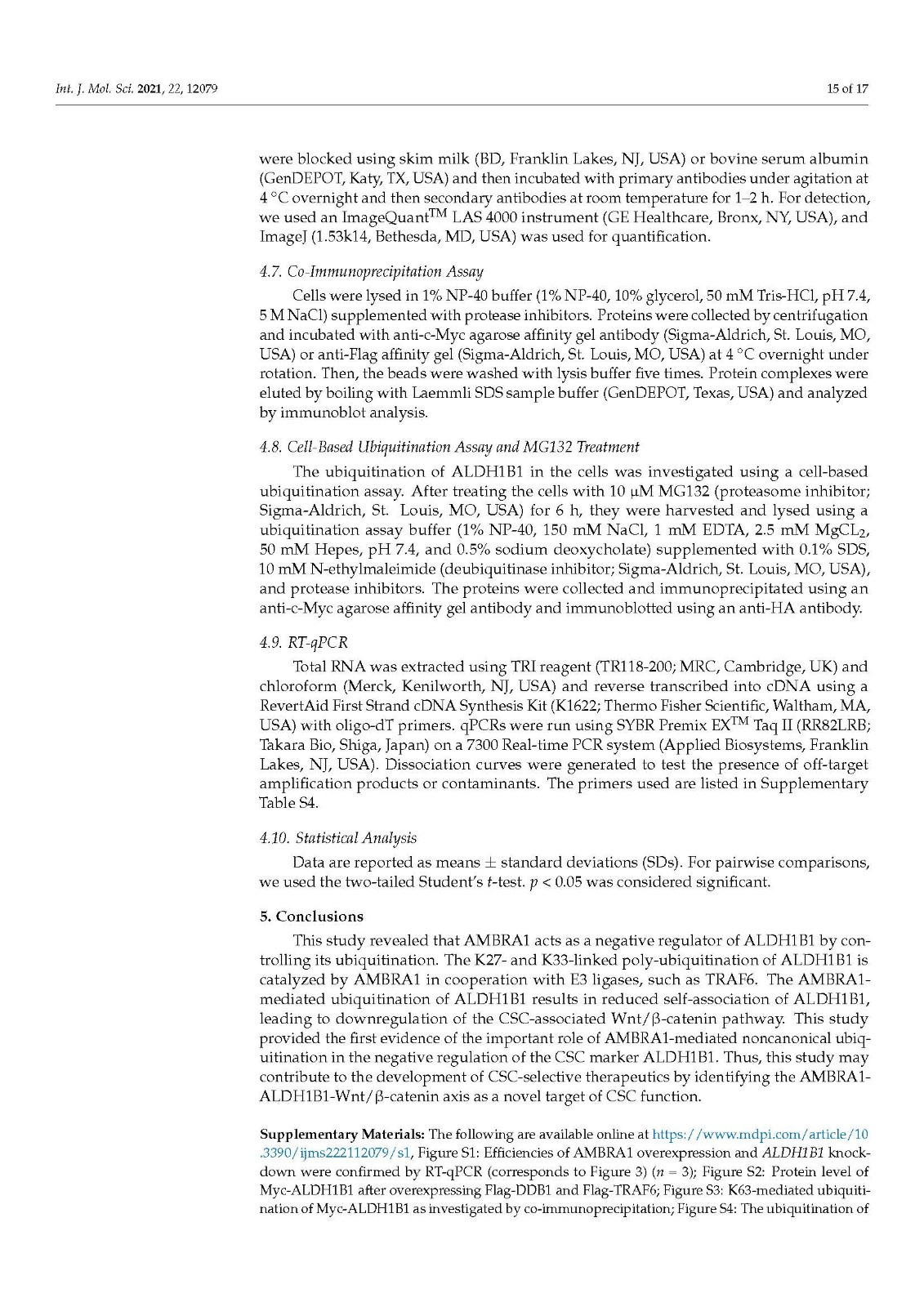
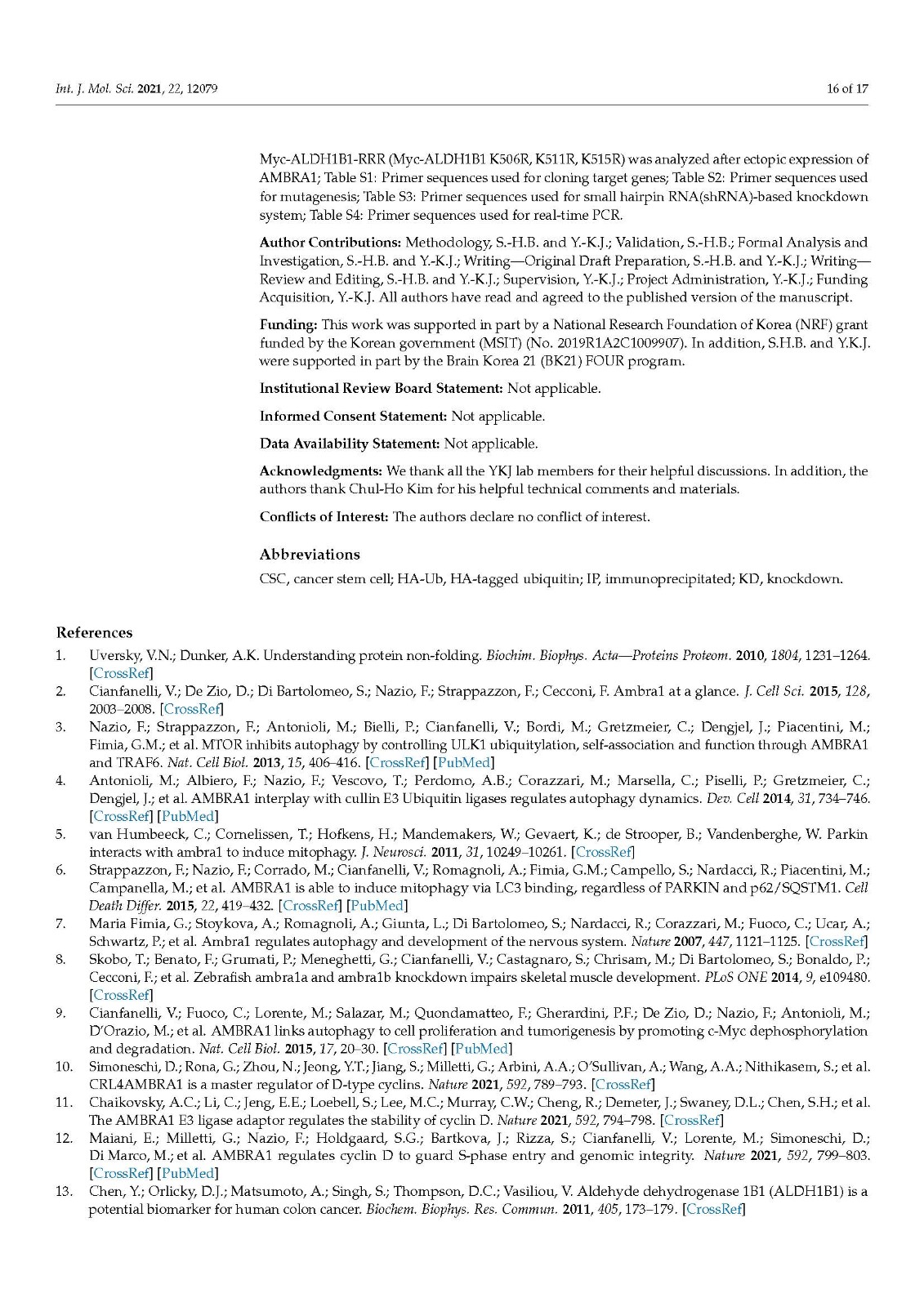
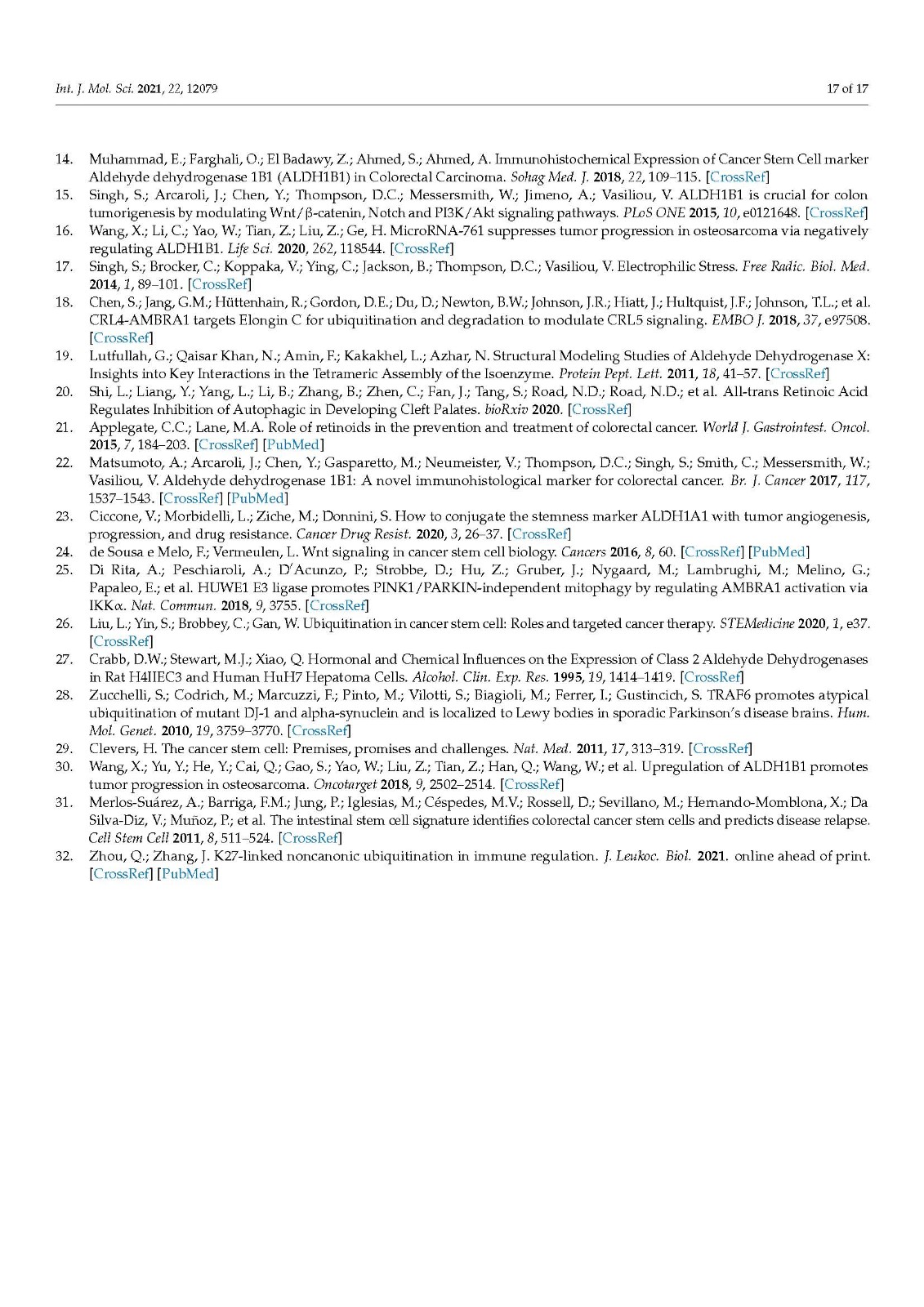
关键词: IL-1β;NF-κB ; 氧化应激;泛酰巯基乙胺酶; 前列腺癌细胞
IL-1β; NF-κB; oxidative stress; pantetheinase; prostate cancer cells
上一篇: 细胞工厂培养细胞常见的三种污染
下一篇: 血清瓶的灭菌要求是怎样的